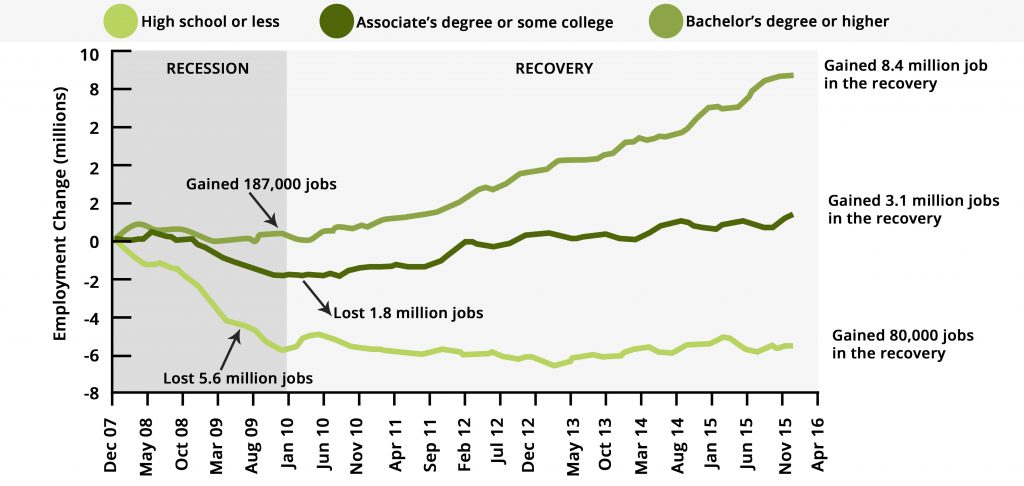Take a look at this ranking of most desired skills, which was collected from a survey in 2010 by Hart Research Associates for the Association of American Colleges and Universities.
1. The ability to communicate effectively, orally and in writing (89%)
2. Critical thinking and analytical reasoning skills (81%)
3. The ability to analyze and solve complex problems (75%)
4. Teamwork skills and the ability to collaborate with others in diverse group settings (71%)
5. The ability to innovate and be creative (70%)
6. The ability to locate, organize, and evaluate information from multiple sources (68%)
7. The ability to work with numbers and understand statistics (63%)

We are not often asked to consider that college professors and employers might be on the same side. After all, there has been a lot of discussion today about whether a college education is worth it for two reasons. First, the price of college is leaving students in severe debt. Second, many students who have a bachelor’s degree are not able to get employment in their fields. Therefore, many graduates end up in minimum wage jobs after getting a rather expensive degree.
So, are employers blowing smoke when they say they value these skills? The operative word here is “skills.” It is presumed that when students have graduated from college, they will have the 7 essential skills above. Not so. In 2003, the American Library Association published the results of an extensive adult literacy test that found only 31% of college graduates in America actually had college-level reading ability. They did not assess the writing, computation, and reasoning skills suggested above, or the percentage would have been much lower. And that same reading assessment conducted today would probably garner even worse results.
We can argue about how we got into a condition where so many students are “inauthentic” graduates. For example, there are the financial formulas of colleges and universities today that cram too many students into classes, so there is little professor-on-student time to assess sophisticated liberal knowledge, let alone train and assess complex skills. Then there is the 3-unit system of the bachelor degree, which rewards students for passive attendance rather than reaching benchmarks of skill and knowledge acquisition. Also, we have the pattern of universities to emphasize “access,” so much so that they admit millions of students each year who simply are not ready for college.
But the professoriate also has problems. In the face of data that suggests that students need more skill development and more active demonstrations so that they can blend knowledge, skills, and academic behavior, the majority of professors still regard themselves as primarily transmitters of sophisticated knowledge in their disciplines, and teach accordingly. Moreover, universities and professors tend to ignore, financially and pedagogically, the lower division where the futures of so many disadvantaged and under-prepared students are made or broken. Finally, when faced with an avalanche of students who are weak to start with, there is pressure from the administration and from social media (for example, ratemyprofessors.com) to dumb down the whole curriculum and let students pass through, even though they show minimal or no skill, or even knowledge, acquisition.
What to do? A lot of things, even though most are beyond our control because they involve money. But nothing gets done unless you can agree on what you are trying to produce. So, the first thing is to identify what is a successful college education-authentic academics-using a language that professors who train and employers who employ can at least agree upon. Here is the evaluation formula I would suggest.
